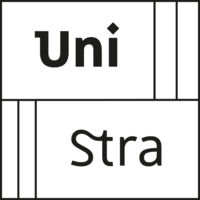预约演示
更新于:2025-05-07
NPFFR1
更新于:2025-05-07
基本信息
别名 G protein-coupled receptor 147、G-protein coupled receptor 147、GPR147 + [7] |
简介 Receptor for NPAF (A-18-F-amide) and NPFF (F-8-F-amide) neuropeptides, also known as morphine-modulating peptides. Can also be activated by a variety of naturally occurring or synthetic FMRF-amide like ligands. This receptor mediates its action by association with G proteins that activate a phosphatidylinositol-calcium second messenger system. |
关联
5
项与 NPFFR1 相关的药物靶点 |
作用机制 NPFFR1抑制剂 |
在研适应症 |
非在研适应症- |
最高研发阶段临床前 |
首次获批国家/地区- |
首次获批日期1800-01-20 |
靶点 |
作用机制 NPFFR1抑制剂 |
非在研适应症- |
最高研发阶段临床前 |
首次获批国家/地区- |
首次获批日期1800-01-20 |
靶点 |
作用机制 NPFFR1抑制剂 |
在研适应症 |
非在研适应症- |
最高研发阶段临床前 |
首次获批国家/地区- |
首次获批日期1800-01-20 |
100 项与 NPFFR1 相关的临床结果
登录后查看更多信息
100 项与 NPFFR1 相关的转化医学
登录后查看更多信息
0 项与 NPFFR1 相关的专利(医药)
登录后查看更多信息
131
项与 NPFFR1 相关的文献(医药)2025-03-01·Reproduction in Domestic Animals
New Insights in Bovine Follicular Cysts
Article
作者: Cicirelli, Vincenzo ; Rizzo, Annalisa ; Martino, Nicola Antonio ; Frattina, Lorenza ; Burgio, Matteo ; Carbonari, Alice ; Dell'Aquila, Maria Elena
2025-02-03·Angewandte Chemie International Edition
Hederagenin is a Highly Selective Antagonist of the Neuropeptide FF Receptor 1 that Reveals Mechanisms for Subtype Selectivity
Article
作者: Tydings, Claiborne ; Meiler, Jens ; Urban, Nicole ; Beck‐Sickinger, Annette G. ; Liessmann, Fabian ; Stichel, Jan ; Schermeng, Tina ; Schaefer, Michael ; Lentschat, Hannah
2024-08-08·The World Journal of Biological Psychiatry
Late maternal separation provides resilience to chronic variable stress-induced anxiety- and depressive-like behaviours in male but not female mice
Article
作者: Dongre, Shweta ; Srivastava, Raj Kamal ; Singh, Padmasana ; Ojha, Rajesh Kumar
分析
对领域进行一次全面的分析。
登录
或

生物医药百科问答
全新生物医药AI Agent 覆盖科研全链路,让突破性发现快人一步
立即开始免费试用!
智慧芽新药情报库是智慧芽专为生命科学人士构建的基于AI的创新药情报平台,助您全方位提升您的研发与决策效率。
立即开始数据试用!
智慧芽新药库数据也通过智慧芽数据服务平台,以API或者数据包形式对外开放,助您更加充分利用智慧芽新药情报信息。
生物序列数据库
生物药研发创新
免费使用
化学结构数据库
小分子化药研发创新
免费使用

